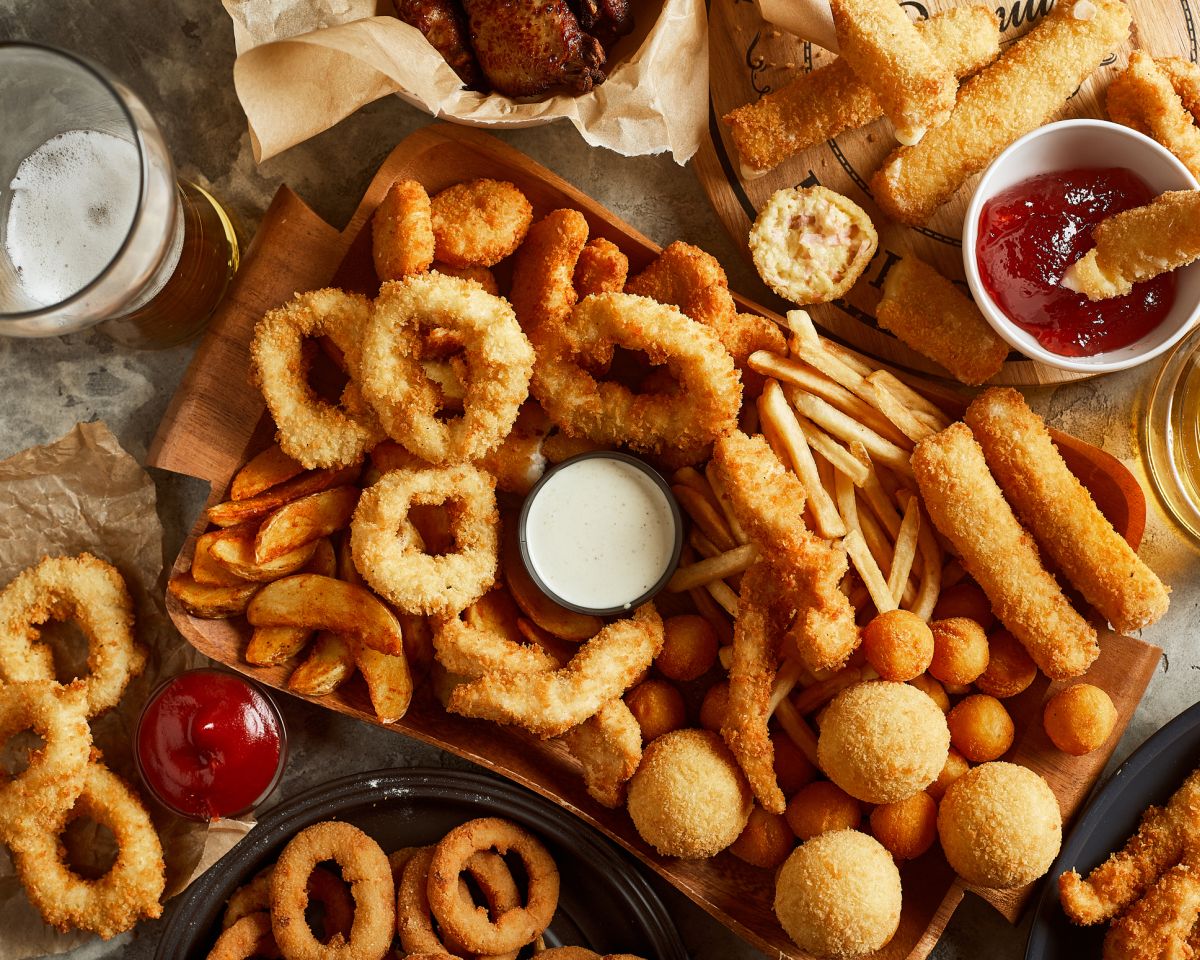The worst foods for your mood are those that can significantly impact your emotional well-being. These foods are often loaded with sugars, artificial additives, and unhealthy fats, and consuming them can lead to mood swings, energy crashes, while contributing to feelings of irritability. Understanding which foods are the worst for your mood is important in making healthier dietary choices and promoting better emotional balance.
10 Foods that Put You in a Bad Mood
1. Cold Cuts
Cold cuts are full of preservatives and nitrates which wreak havoc on the digestive system and can cause other issues, including bad moods. Colorings and additives in these packaged meats also cause water retention, bloating, and headaches. Any processed meats fall into this category, not just deli meats but also hot dogs and sausages.
Consuming processed meats may also lead to migraines, bloating, or even swollen ankles or other joints which can cause bad moods. Antibiotics, salt, sugars, preservatives, and other fillers in these processed meats can also affect the body’s cardiovascular and cerebrovascular systems, contributing to bad moods and potentially harming the system.
2. Wheat (Gluten)
Even for people who aren’t gluten-sensitive, wheat can cause moodiness by triggering inflammation and gut disturbances. Nutritionists explain that wheat can have these negative effects even on people who don’t think they are affected by gluten. Those who consume wheat should look for whole wheat options that use the bran, the germ, and the endosperm, not just the endosperm found in items like white bread and plain bagels.
3. Sugary Beverages
High sugar levels cause a rapid rise in energy and then crash, People often assume only regular sodas are high in sugar, but many other beverages contain a lot of sugar as well. In addition to full-calorie sodas, sugary drinks include juices and cocktail mixers.
Many people may be inclined to choose diet beverages instead, but those contain artificial sweeteners, like aspartame, that are equally bad for mood. Artificial sweeteners tend to create a flavor far sweeter than those associated with traditional sweeteners. Exposure to this heightened sweetness can lead to a greater desire for sugars, leading people to overindulge in sweet foods that can negatively affect a person’s mood.
4. Salted (Pea)Nuts
Storebought salted peanuts contain salt, MSG, and other preservatives that can cause bad moods. Recent studies have produced evidence that MSG blocks neurological signals which can limit the production and transmission of feel-good endorphins, and may even be precursors to mental illnesses like clinical depression and schizophrenia. Packaged peanuts aren’t the only culprit. Most packaged nuts contain these preservatives, which can cause moodiness, headaches, weakness, and fatigue. Nutritionists suggest roasting unsalted nuts at home with rosemary, which has brain-boosting capabilities.
5. Caffeinated Beverages
Coffee and tea aren’t the only caffeinated beverages, but they’re the most common. Studies have shown that caffeine drinks cause elevated cortisol, dopamine, adrenaline, and adenosine which contributes to anxiety and depression, along with other bad mood symptoms. While these beverages cause a temporary spike in energy levels, they ultimately leave people feeling depleted and in a bad mood.
6. Heavily Processed Foods
Heavily processed foods like red meat, sausage, salami, and bacon tend to increase the risk of depression because of the high saturated fat and sugar content in these foods. It’s worth noting that those who don’t eat meat at all also suffer anxiety and higher risks of depression, so the issue appears not to be the meat itself but the processing of these foods.
7. Margarine and Shortening
Butter might not be the worst choice, but butter substitutes should be avoided as the fats in these oily substances can cause bad moods. These Omega-6 fatty acids result in inflammation and block out the effects of healthy Omega-3 fatty acids, which are mood boosters. Unhealthy fatty acids reduce insulin levels, while artificial varieties elevate them. Grass-fed butter or ghee are better options to preserve positive vibes and a good mood.
8. Egg Whites
While egg whites are lower in calories than whole eggs, all the mood-boosting qualities are found in the yolks. Therefore, eating only egg whites reduces any mood-enhancing qualities that egg consumption could have. Eating just egg whites isn’t necessarily bad for a person, but the parts of the egg that aid in health and mood are found in the yolks. So, while eating the whites only results in fewer calories, it may harm your overall well-being and mood.
9. Fried Foods
Fried foods can harm mood by affecting the hippocampus, making people feel joy even when they aren’t happy, and leading to depression over time and with increased consumption. A common contaminant in fried foods, acrylamide, also triggers neuroinflammation, which can disrupt signals from the brain and hormone production. In addition to depression, this hormone disruption can also cause irritability, anxiety, and nervousness. Consumption of trans fats stimulates the brain to crave more of these types of food, creating a self-perpetuating cycle. Grilled, sauteed, or steamed options are more optimal for health and mood.
10. Alcohol
Alcohol may be associated with happy hours and relaxing at the end of a hard day, but it is equally well known for its depressive symptoms caused by…, which can lead to a bad mood. While that glass of wine might calm the nerves, it also suppresses the production of serotonin – a feel-good chemical – in the brain. Alcohol consumption also interferes with digestion by increasing bacteria in the intestines, which may trigger inflammation. Furthermore, alcohol can interfere with sleep, disrupting the REM cycle and leaving people overly tired. Since fatigue is known to contribute to stress and bad mood, alcohol can exacerbate these conditions.










Leave a Reply